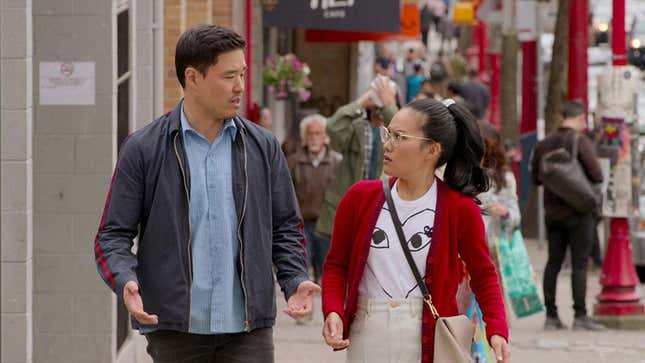
Screenshot: Netflix
When news broke in 2017 that Ali Wong and Randall Park were teaming up to film a romantic comedy, the general tenor of the chatter around this development was breathless and hyperbolic—fans of both actors screaming from the rafters about how desperately we needed a rom-com with Asian American actors that finally put Asians in the spotlight as the romantic leads. Always Be My Maybe is the end result of that fervor, arriving two years later, after the commercial and critical success of a variety of stories showcasing the Asian American experience. As the newest entry to the rom-com genre, it succeeds not solely because of its representation: Always Be My Maybe is a sparkling, charming rom-com that celebrates the hyper-specific Asian experience of growing up in the late ’90s in the Bay Area: a love letter to Clement Street dim sum and a gentle reminder that the best kind of love is sometimes found in the things we leave behind.
Spoilers ahead.
-

-

-

-

-

-

-

-

-

-

-

-

-

-

-

-

-

-

-

-

-

-

-

-

-

-

-

-

-

-

-

-

-

-

-

-

-

-

-

-








































